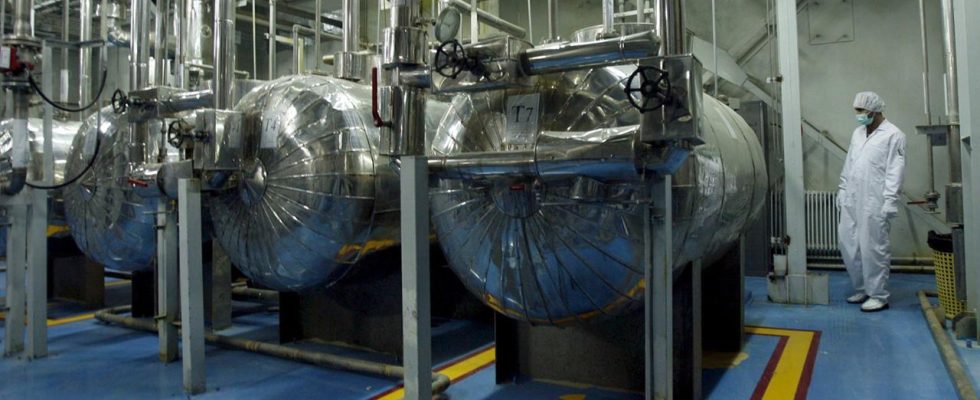background
The university city of Isfahan is considered the center of Iranian nuclear research. But drones are also produced there, which Russia uses to attack Ukraine.
In 1984, Iran began commissioning the research center near the university city of Isfahan. By then, Head of State Ayatollah Ruhollah Khomeini had declared nuclear energy “un-Islamic” and banned all research work. After the end of the Iran-Iraq war in 1988, the country increasingly looked for foreign partners.
Iran now operates three small research reactors at the plant, supplied by China, which are also used to produce fuel rods. At the Isfahan facilities, uranium can be converted into the gaseous uranium hexafluoride – a necessary raw material for enriched uranium needed to build nuclear bombs.
Isfahan is also home to a large army air base and a factory for building drones, which, according to the US, were also used by the Russian army to attack civilian infrastructure in Ukraine. The drones are assembled in several hangars at the city’s airport. Iran has denied building drones for Russia in the country since the start of the war.
In recent years, Iran has built up large-scale drone production. The Iran Aircraft Manufacturing Industrial Company (HESA) has developed a whole range from very simple kamikaze drones to modern stealth drones and exports the weapons to numerous countries. Drones are increasingly being used in military conflicts around the world.
Nuclear deal failed
The USA, France, Great Britain, Germany as well as Russia and China concluded a nuclear agreement with Iran in 2015. It was intended to prevent Tehran from developing nuclear weapons. In 2018, the USA under its then President Donald Trump unilaterally withdrew from the agreement. As a result, Iran gradually stopped adhering to its obligations. Since then, negotiations to revive the agreement have remained fruitless.
Recently, the head of the International Atomic Energy Agency (IAEA), Rafael Grossi, expressed concern about the significantly increased amount of enriched uranium that Iran has. Grossi called on Iran to resume “full cooperation” in his organization’s monitoring of Iran’s nuclear program.

